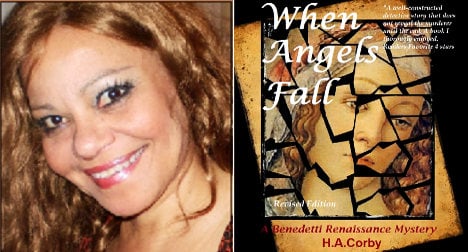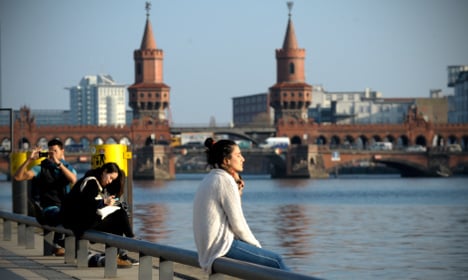Where are you from originally?
I was born in London, England.
So what brought you to Italy? Has it always been a dream destination?
After visiting Rome for my birthday, I decided I wanted to move here from Spain and I accepted an English teaching contract which landed me in Trapani, Sicily. It has not always been a dream destination, but it had always been a dream to visit. My first stop was the Colosseum.
You seem to have lived in a lot of places, in the south and north. Italy's often described as a place of "two halves", so how would you sum it up?
In general, people are friendlier, more open and hospitable in the south. There is a very different mentality there and they do whatever they like with little regard to the rules. Sicily is a wonderful island with a diverse history but I do not really recommend life in Palermo. I have found it much harder to make friends in the north. They will be polite and friendly, but they will not open their doors to you as easily.
You're a crime novelist and have written When Angel Falls. Did you write before you came to Italy?
No, I didn't write before I came to Italy. I was inspired during my year in Florence. Being addicted to crime novels and writers such as Agatha Christie and a lover of Sherlock Holmes stories along with a passion for the Renaissance, I married them together to come up with my first historical crime fiction set in Renaissance Florence, When Angels Fall A Benedetti Renaissance Mystery. I'm working on my second crime fiction, which is set in Naples and has just been adapted to a screenplay. I won't tell you the name yet – still a secret.
What is it about Italy that inspires your books? Imperia in itself must be very inspirational.
The wonderful history. Living in Palermo, Florence and Rome, I could close my eyes and travel back in time and breathe the history. I enjoyed a pit stop in Tellaro and the Golfo dei Poeti where I visited the most beautiful cove and saw the houses that D.H. Lawrence and Lord Byron stayed in. Staring out of a large glass window at the sea was very inspiring. I experienced things that really stirred my imagination and have come to life in my books. There is nothing quite so inspiring and beautiful as Italy's coastline and its islands.
You seem very happy to live here, but Italy is not without its problems. So is there anything that frustrates you about Italy?
Yes, the bureaucracy and, at times, the poor work ethic are quite frustrating.
What would your survival tips be for anyone looking to come here and make a living?
I honestly can say, I do not recommend coming here to make living that is dependent upon the Italian economy, such as teaching English.
Go out, meet the locals, shop at the same places and they will get to know you. Smile, be friendly and life will be easier. Enjoy the cafes, the great pizza, pasta and fish. See the country, explore all the historical wonders!
Just remember, things move far more slowly here and are extremely complicated.
As with any country, there are the unscrupulous but in general, I found Italians to be sociable, warm, friendly, helpful and kind people and they love anglophiles! I have met some real angels that helped me in my time of need.
Hillary can be found bloggin at www.hacorby.wordpress.com
When Angels Fall A Benedetti Renaissance Mystery is available here:
http://www.amazon.com/dp/1480110248
http://www.amazon.co.uk/dp/1480110248




 Please whitelist us to continue reading.
Please whitelist us to continue reading.
Member comments